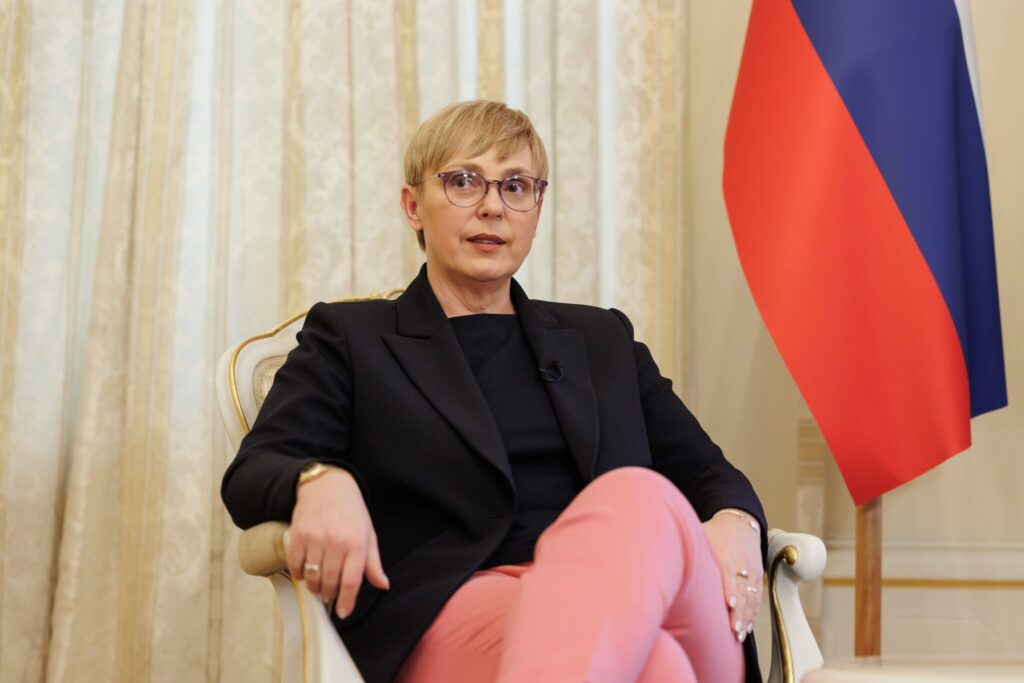On the 23rd of February this year, the Simon Wiesenthal Center, an international Jewish organisation, warned the President of the Republic of Slovenia, Nataša Pirc Musar, about expressions of anti-Semitism, xenophobia, calls to violence, the spread of conspiracy theories, fake news, glorification of dictatorships and terrorist organisations, on RTV Slovenia, its website and social networks where it facilitates discussions. But almost three months later, the President has not yet publicly responded to the international organisation’s serious accusations. During the election campaign, she reproached her predecessor Borut Pahor for remaining silent on important issues too many times, claiming that she herself “will not remain silent when I think that the wrong things are happening in our society” and that “everything I do, I do with commitment.” But in the case of allegations against the national media outlet, Radio-Television Slovenia, and individual journalists, which have reached as far afield as abroad, she has been rather disengaged and silent. Selectively silent, in fact, because she is still quick (too quick) to react to certain things, as she did, for example, with the attack on Pavle Rupar.
Perhaps (almost certainly) this selective silence is the reason why the Simon Wiesenthal Center, one of the largest international Jewish human rights organisations, has assessed that such hate speech is being facilitated by a journalist whose name they did not reveal, but judging by the content of the article, all indications are that the criticism is directed at the journalist Boris Vasev. If it had been any other journalist or, for example, Uroš Urbanija, the President would have been happy to speak up quickly.
In a letter addressed to the President of the Republic, Nataša Pirc Musar, Dr Shimon Samuels, Director of the Wiesenthal Center for International Relations, drew attention to anti-Semitism in the Slovenian media. He began by pointing out that at the Wiesenthal Center, they were aware of the programmes through which our country commemorates the murder of 90 percent of the Slovenian Jewish community in the Holocaust, and that they were aware that Slovenia had adopted a legally non-binding working definition of Holocaust denial and distortion. “Nevertheless, our attention has been drawn to expressions of anti-Semitism, xenophobia, calls to violence, conspiracy theories, fake news, glorification of dictatorships and terrorist organisations on the national public broadcasting company, Radio-Television Slovenia (RTV Slovenia) – including its website rtvslo.si and social media outlets. Reportedly, the moderator allowing this sort of hateful expression is a well-known journalist.” the letter read.
From the hateful quotes they have provided, it is clear that they are talking about the journalist Boris Vasev. They wrote that he is a journalist who also expresses his explicit hatred of Jews through his Twitter account, where he claimed that “the vaccination campaign exposes the essence of Israel’s Apartheid regime,” explaining that “the policy of Jewish supremacy in Israel means that the government restricted vaccines to its Arab citizens.” Furthermore, the journalist qualified Israel as a “European settlement – colonial project” … “which establishes and maintains a Jewish majority in Palestine using methods of ethnic cleansing.”
Our selectively silent President
According to Samuels, the writings of the RTV journalist are malicious, biased and appalling. While the European Union and other countries see Hamas as a Palestinian terrorist organisation, the “journalist” has declared it to be a liberation movement of freedom fighters. The Simon Wiesenthal Centre, while criticising the report, called on Slovenian President Nataša Pirc Musar to work with the relevant Slovenian authorities to investigate the allegations of anti-Semitism and to put an end to defamatory or hateful rhetoric in the national mainstream media. “As a lawyer and a former journalist, you are well aware of the limits between information or free opinion and incitement to hatred or defamation,” they added. Anti-Semitism, as well as other forms of hostility, should have no place in the public media, and it would be appropriate for the President to speak up on this matter. After all, she even considers herself a human rights activist. Many people might wonder if this is because she does not want to go to the public media after having supported the Golob Amendment in the presidential campaign.
It is also worth noting that Pirc Musar said the following, which is, in fact, still written on her website – “Change never happens faintly and in silence,” and this time, she could follow her own advice. We have also sent questions to the President’s office asking why, after almost three months, she has not yet made a public statement on the subject, given that the international organisation’s allegations are a serious matter, and we also asked whether she has heeded their call to investigate the allegations of anti-Semitism with the competent Slovenian authorities and put an end to the defamatory or hateful rhetoric in the national mainstream media.
Sara Kovač


